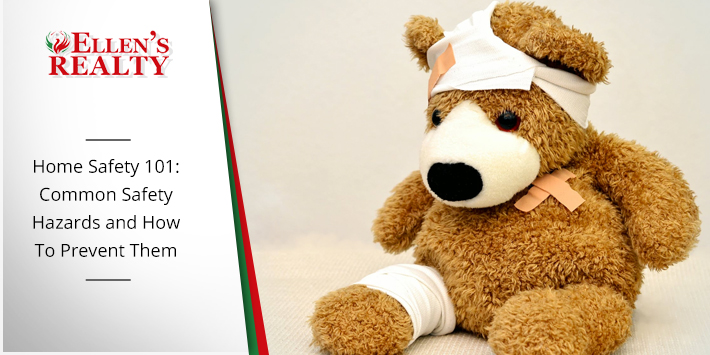It is always top priority to create a safe environment for your family at home. Although there a number of dangerous safety hazards lurking around the average home, most of these issues can be easily addressed.
To make sure you’re doing everything to keep your family safe, refer to this guide for the most common safety hazards and how to prevent them.
FALLS
The most common home hazard are injuries due to falls. Wet floors, slippery stairs, and scattered toys are all potential constituents for falls. 1 out of 5 adults result in either a head injury or a broken bone due to a fall.
Here are a few ways so we can minimize the risk:
- Secure Staircases – Make sure that all staircases have stable handrails, securely installed flooring, ample lighting and safety gates if there are small children.
- Keep Outdoor Steps Unobstructed – Outside stairs should be clear of any debris. You can add mats or grip tapes to make the surface less slippery.
- Safeguard bathrooms – Use secure rugs to prevent slipping and water from pooling on slippery surfaces. Bathroom floor stickers are also a good way to keep everyone from slipping in the shower.
- Fence In Toys – Make sure that kids have an easy space to stow their toys so that every playdate ends without injury. Moving toys must be secured in a safe area where other family members and visitors don’t end up tripping on them.
- Install Safety Rails and Supports – Safety rails in the bathtub or shower help family members, old and young, get in and out of the shower safely.
FIRES
Fires cause everything from minor smoke damage to complete devastation. Candles or an unattended iron could easily lead to an accidental fire in your home, but there are steps you can take to keep a fire from getting out of control.
- Invest in Fire Alarms – Install fire alarms on all the levels of your home and make sure to change the batteries at least annually.
- Keep An Eye On Candles – Never leave candles unattended or near fabric like drapes, curtains and blankets. Make sure too that they are not within children’s reach and that pets can’t knock them over.
- Unplug Appliances – You can prevent an electrical fire by making sure that all of your appliances are in good working condition. Don’t overload electrical outlets too. It might be a wise practice to unplug small appliances, like blenders and toasters, when not in use.
- Keep A Fire Extinguisher Handy – Have at least one fire extinguisher in your home. Make sure to check it annually to confirm that it is in good working condition and up to date.
CARBON MONOXIDE EXPOSURE
While low levels of exposure to carbon monoxide can cause headaches and dizziness, high levels can lead to a more severe series of effects from vomiting, impaired vision and even death. It’s a rather difficult threat to detect given that you cannot easily detect carbon monoxide simply by smell, sight or sound. Fortunately, there are ways to ward off CO-related hazards.
- Set Up A Carbon Monoxide (CO) Detector – By installing a CO detector, it will alert you if CO reaches hazardous levels in your home. One that plugs into an electrical outlet, saves you from having to change batteries.
- Regular Home Maintenance – Have your Heat, ventilation and air conditioning system, water heater and other appliance that use gas, oil or coal serviced as regularly as possible by a professional, to check for CO leaks.
POISONING
Several household products pose as poisoning hazards, including cleaning and maintenance supplies. A little due diligence and common sense can reduce the chance of anyone in the family to become a victim.
- Store Medicines Properly – All medications, both over the counter and prescription must be kept away from children. Never leave them on the counter and throw away all unused medicines.
- Keep Chemicals Secure – Shield both children and pets from accidental poisoning by mistaking cleaning supplies for food or toys. Keep household cleaners and detergents in a high cabinet with a lock to keep them away from kids and pets. Secure pesticides and even paint, turpentine in a locked closet in the garage or shed.
What could be more important than keeping your family safe? Knowing what to look out for and knowing the basics on how to minimize unwanted accidents will help a lot.

